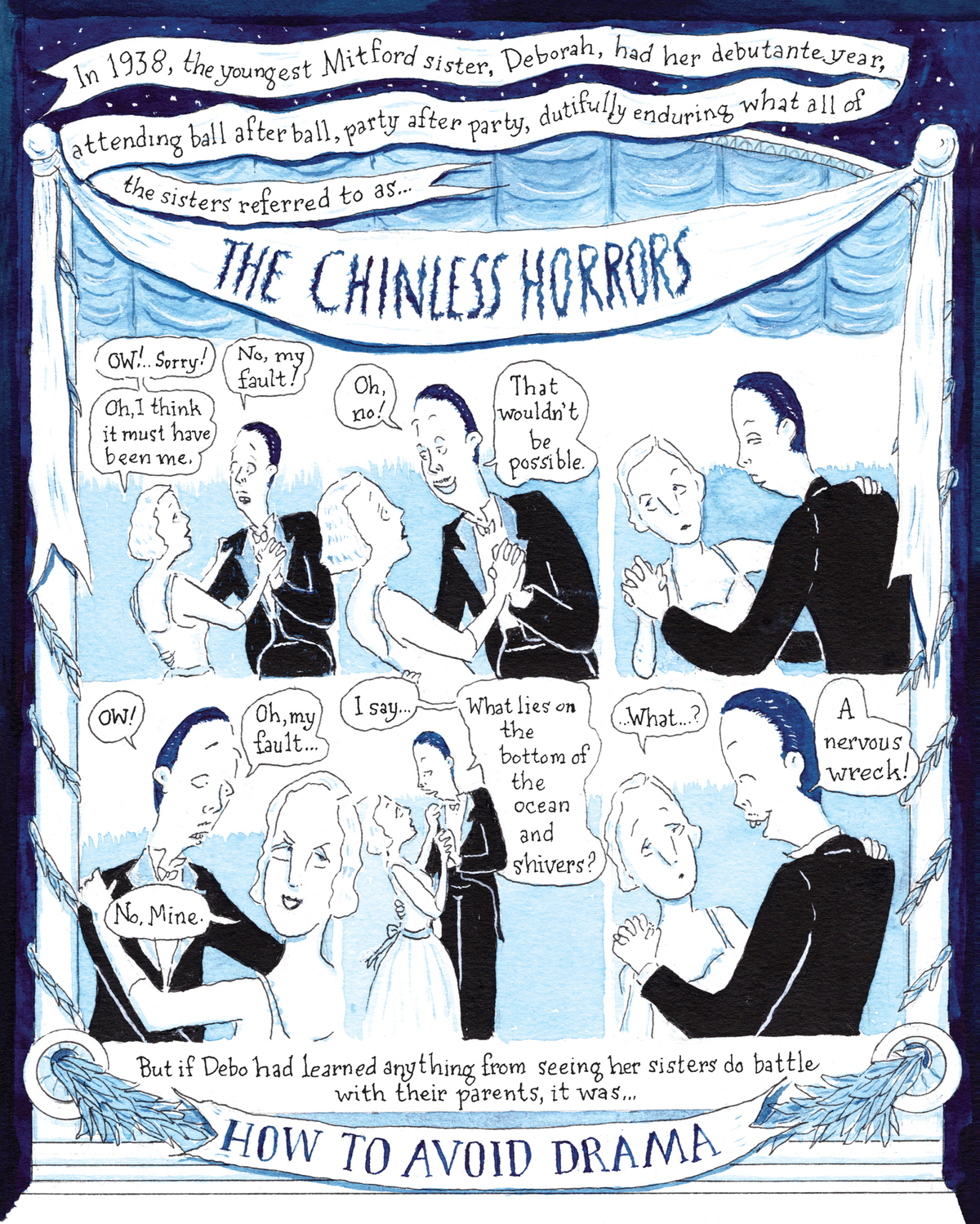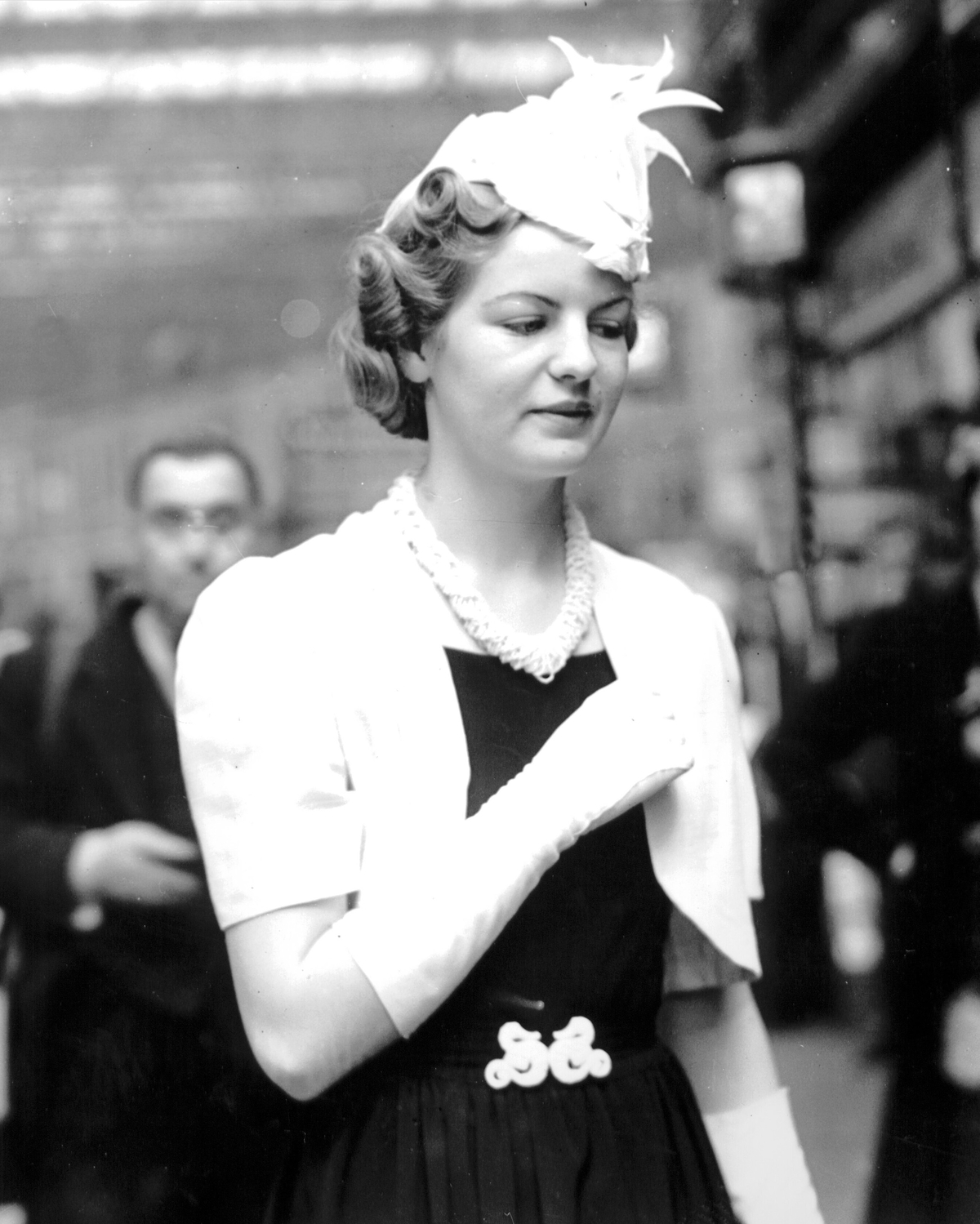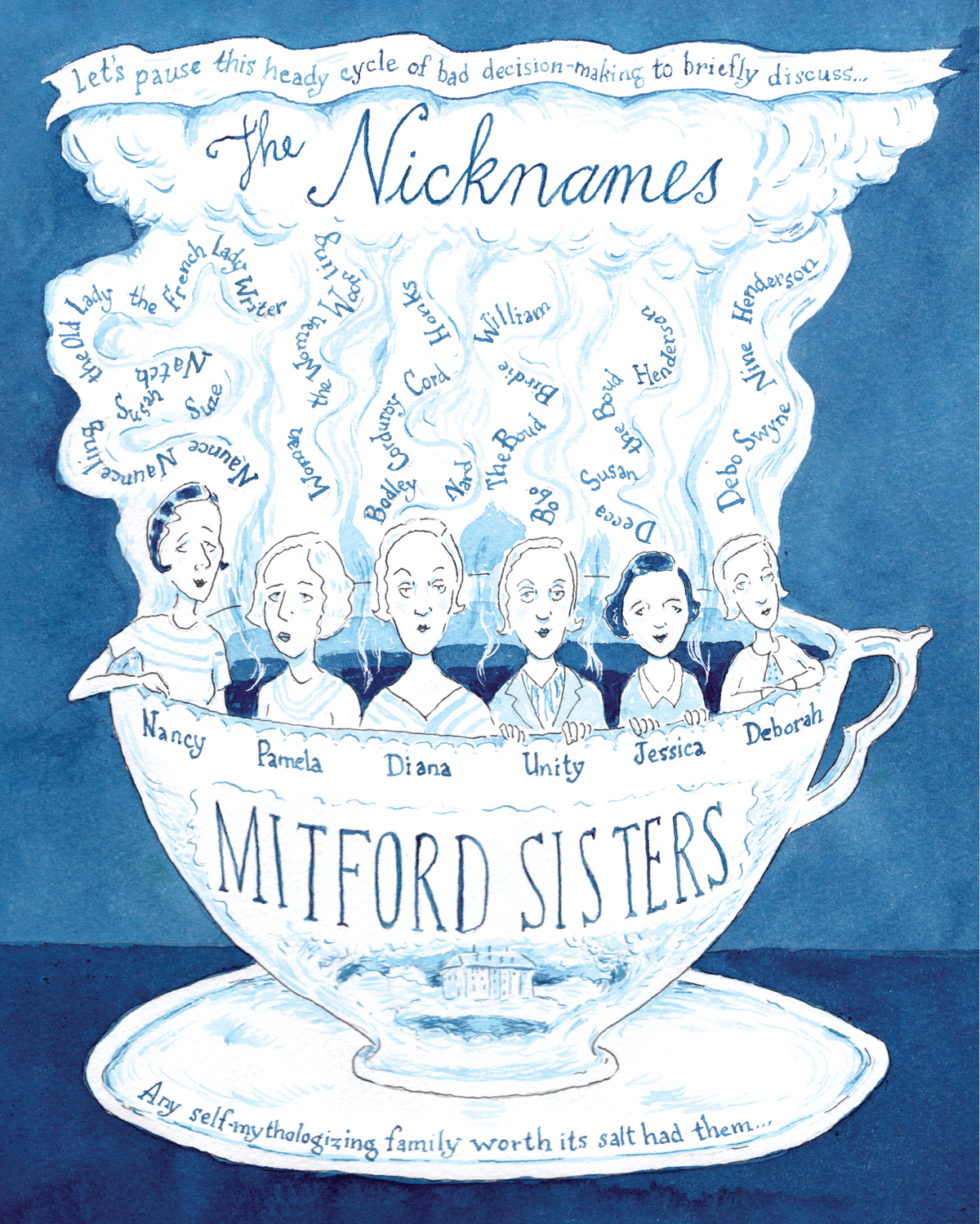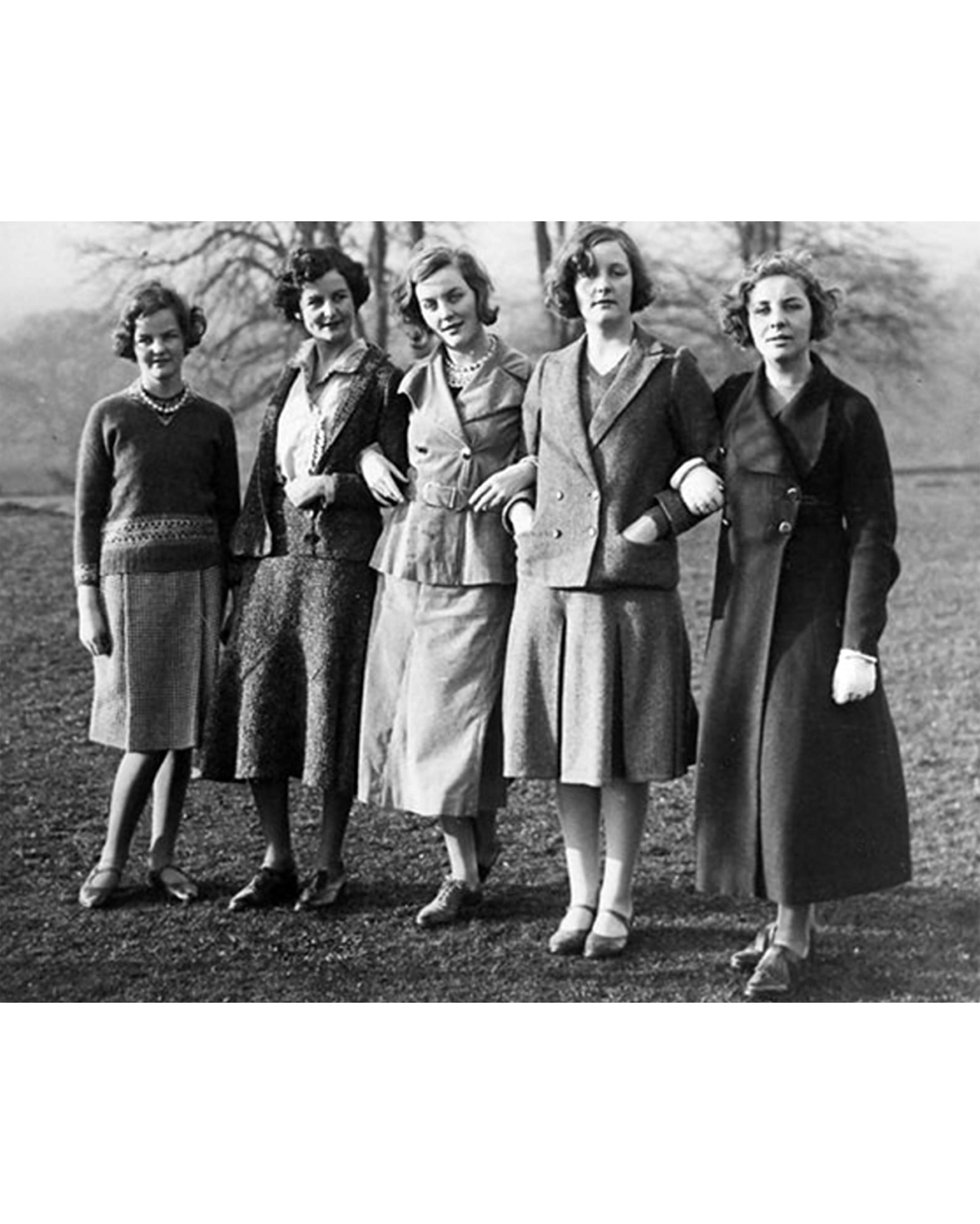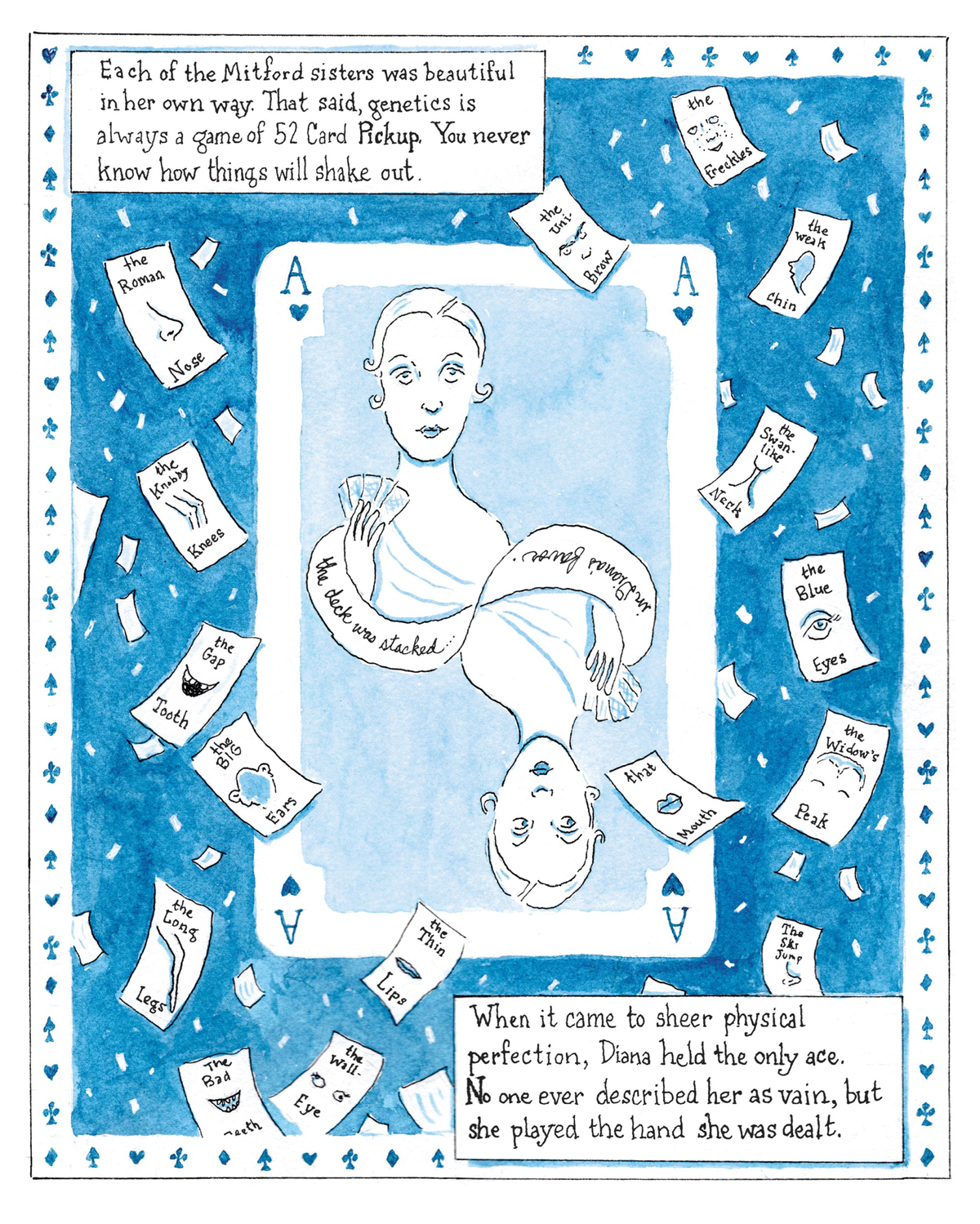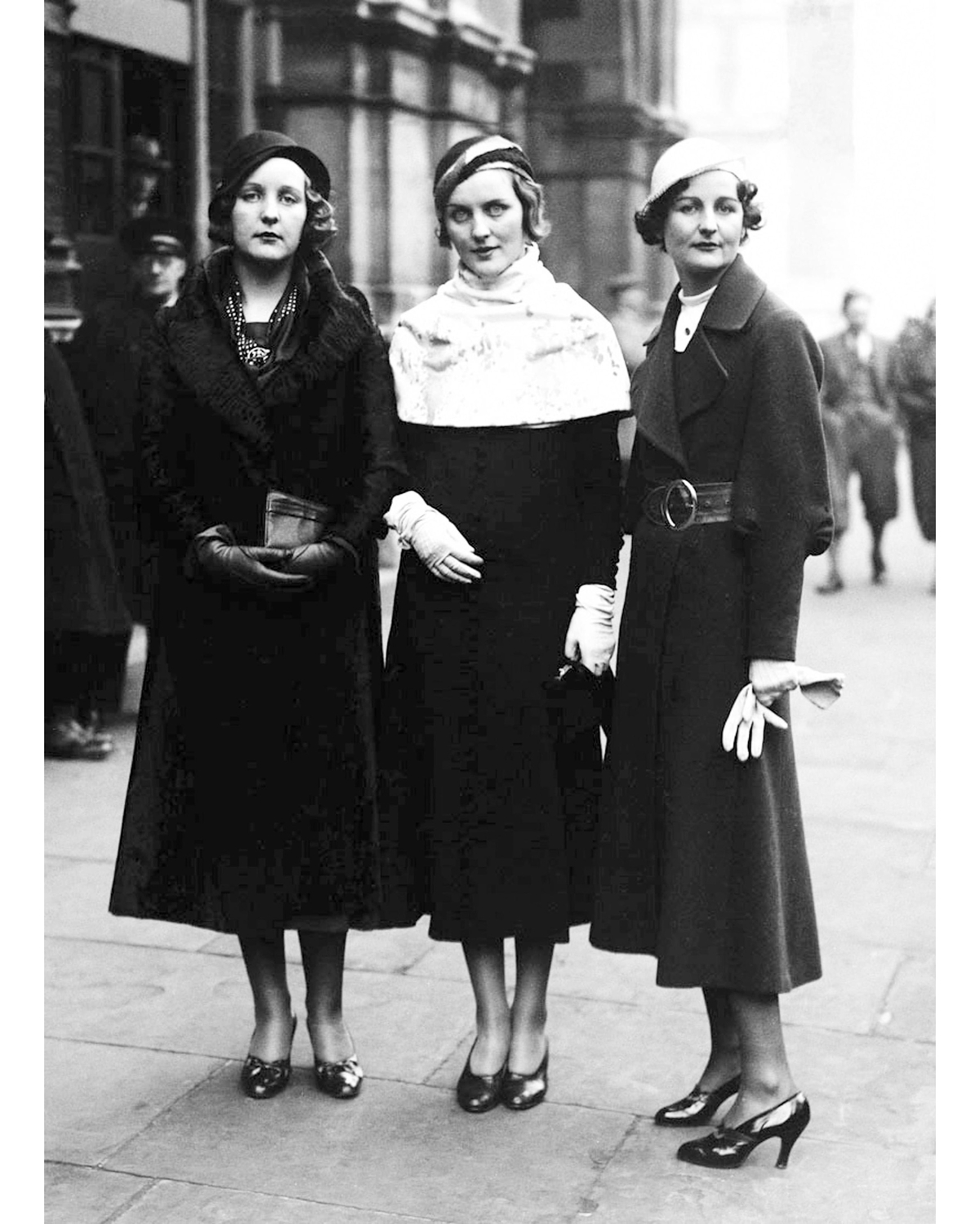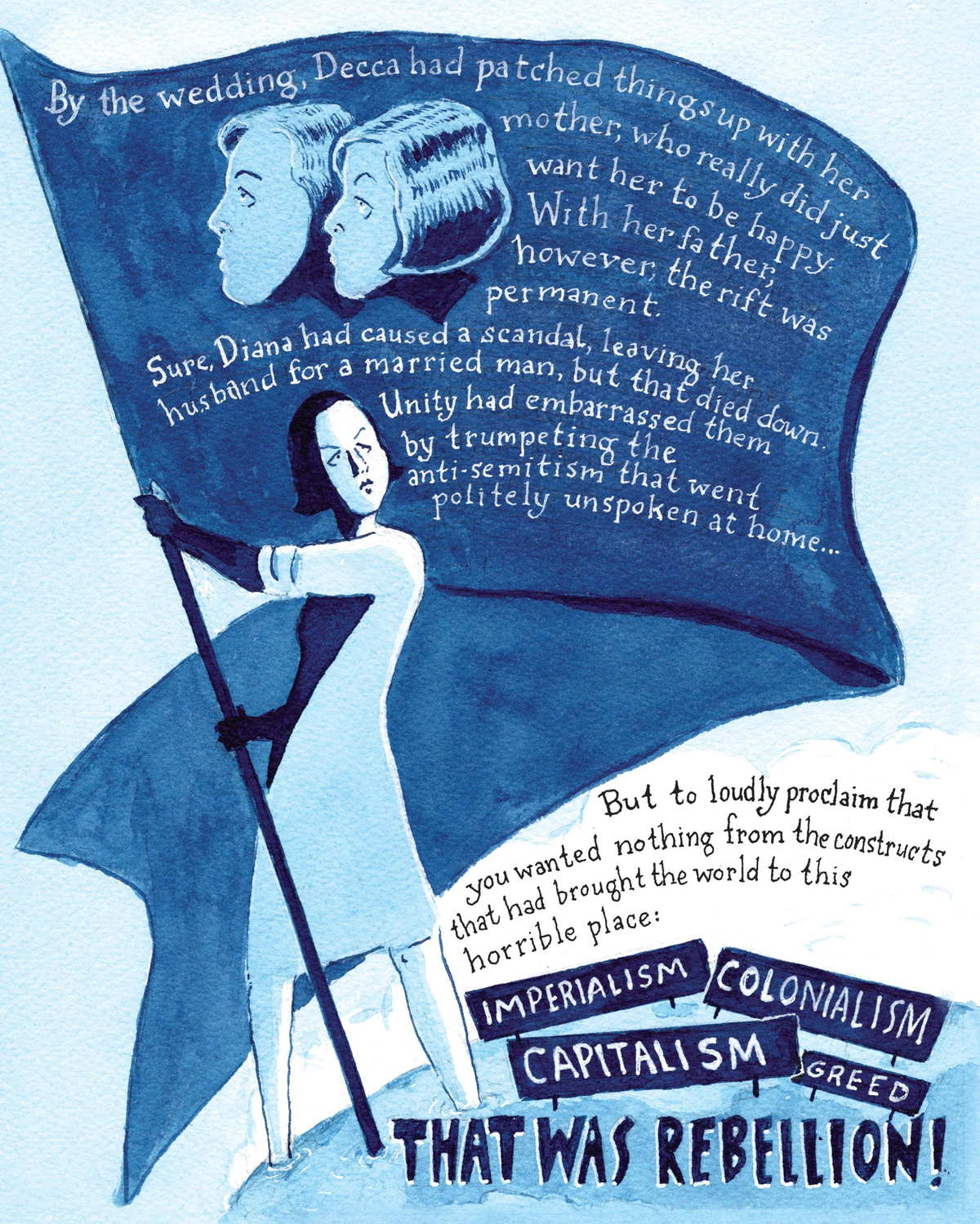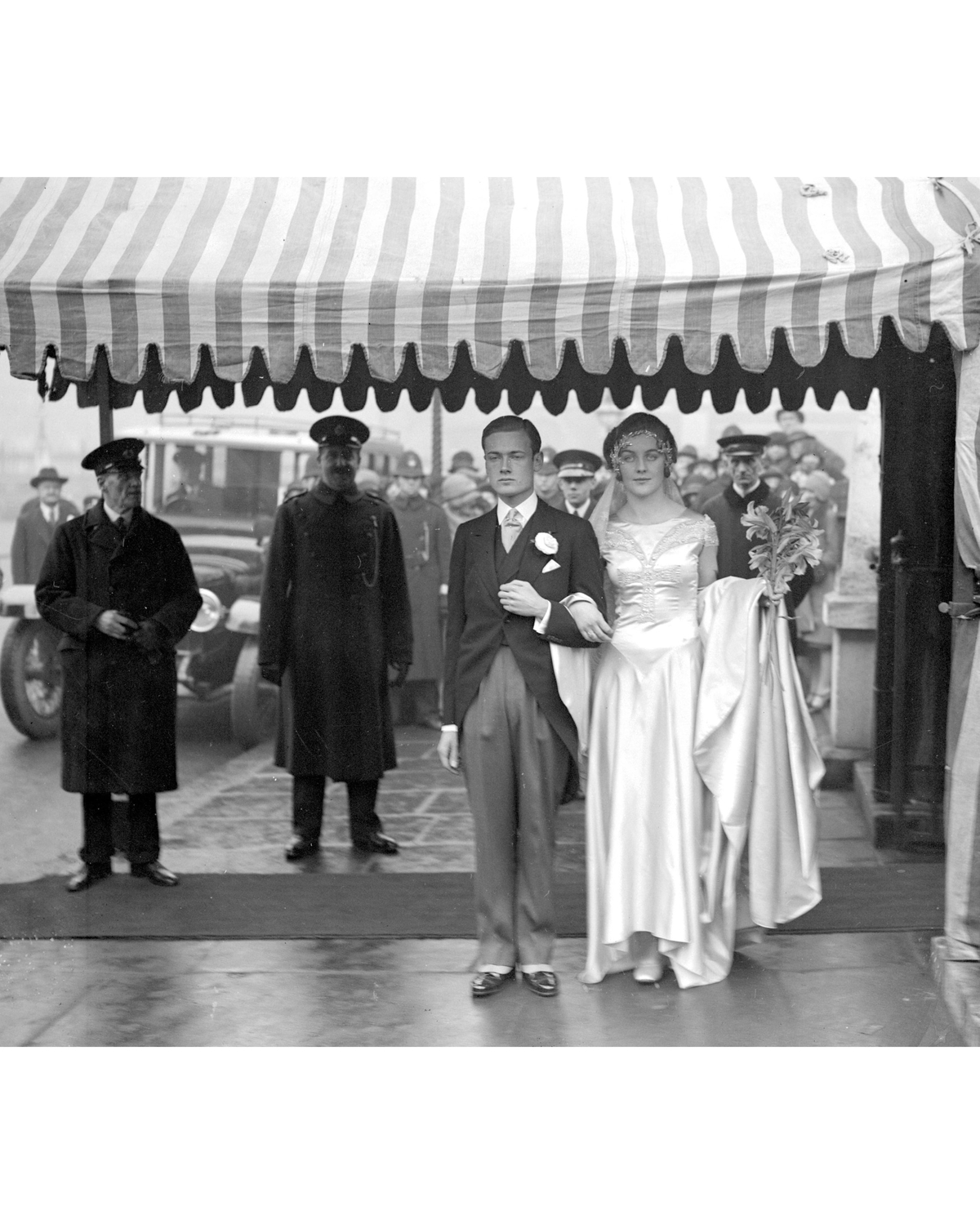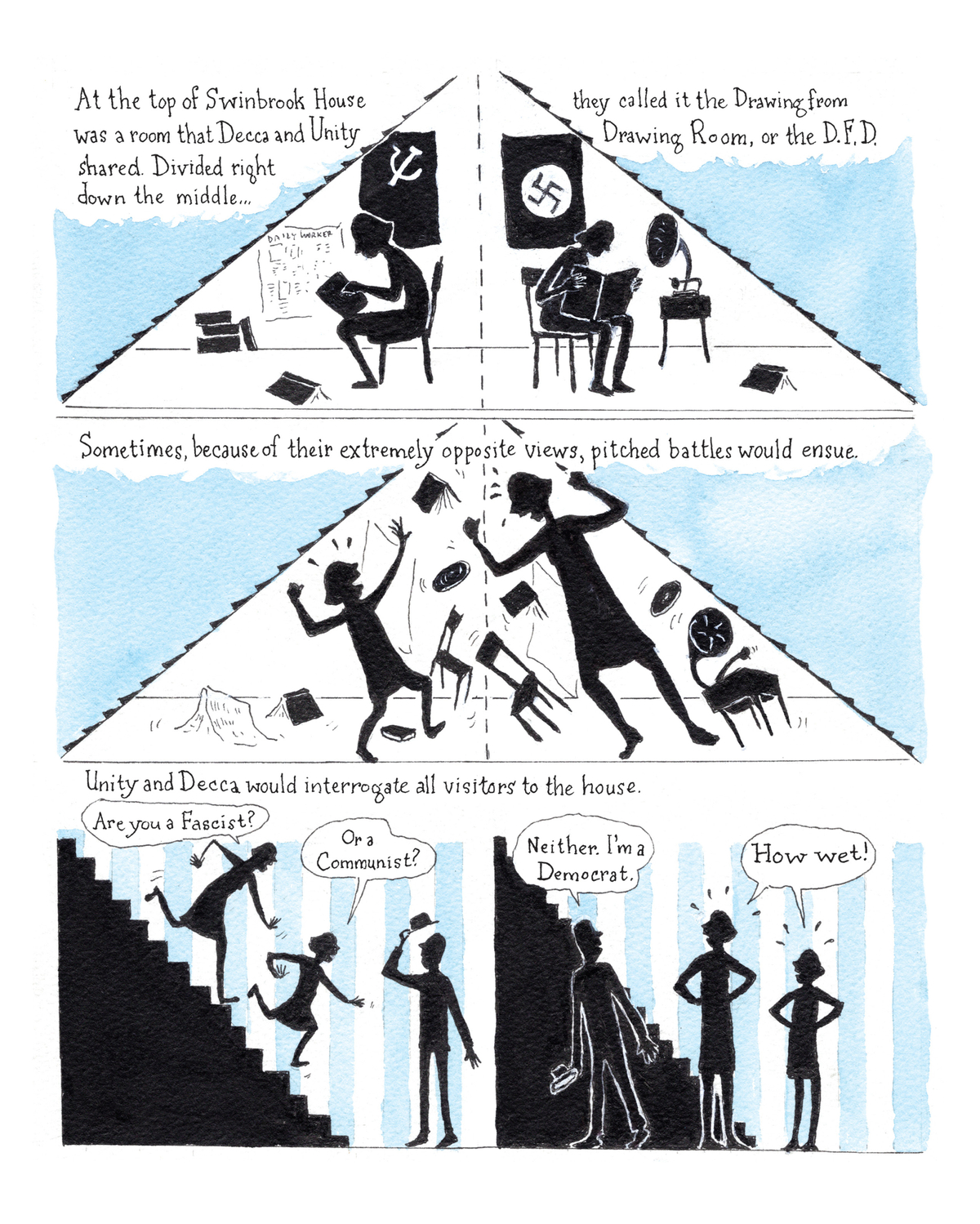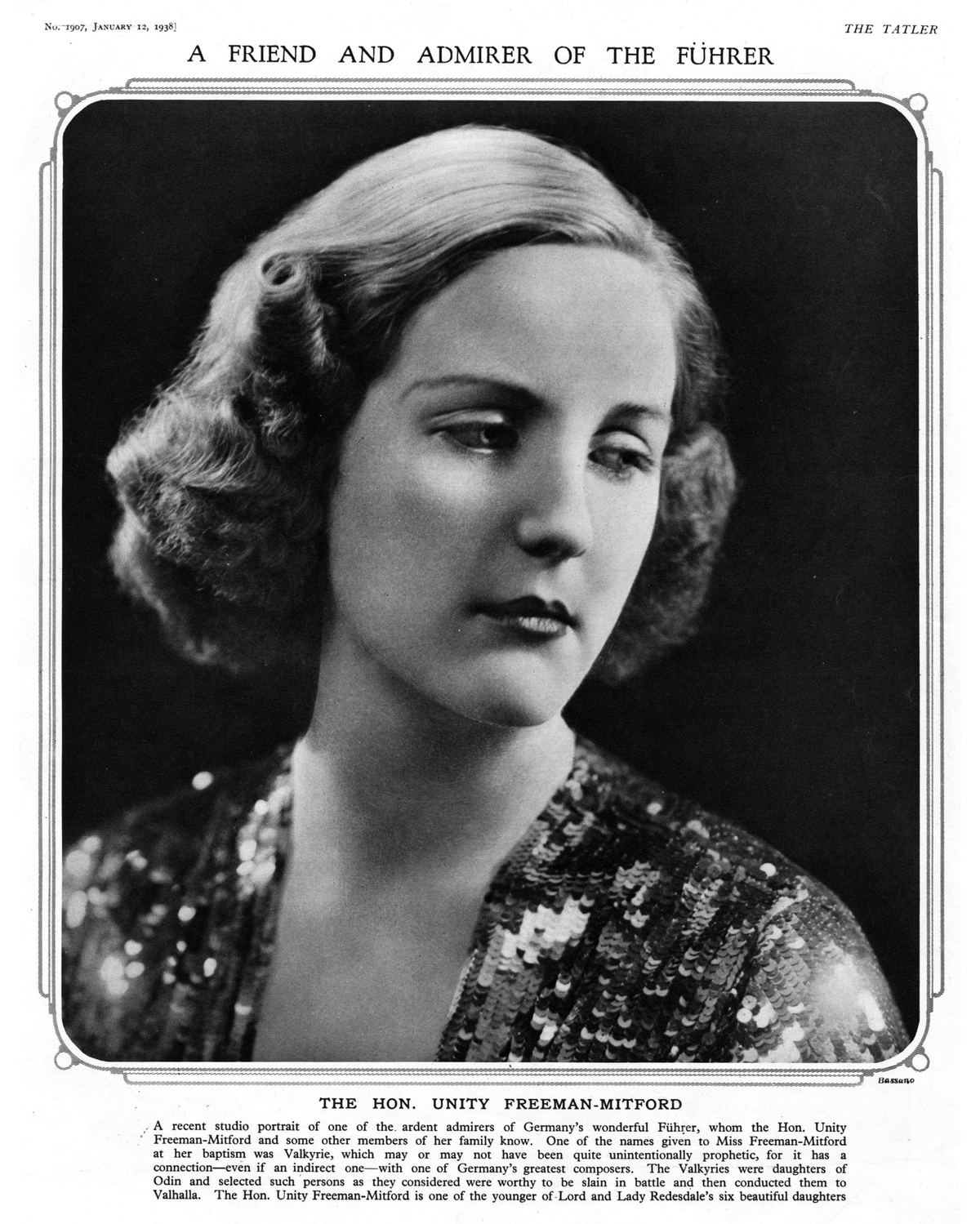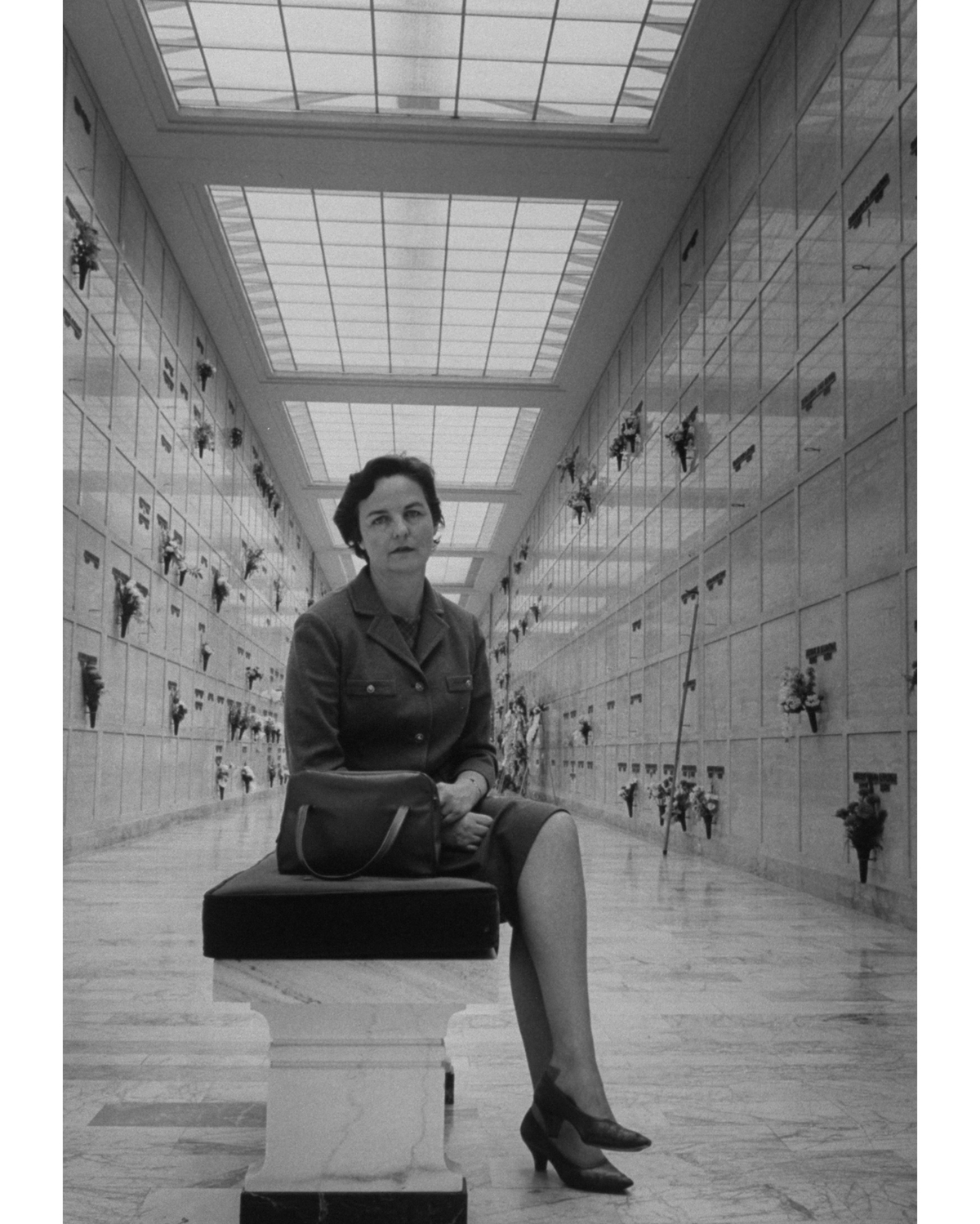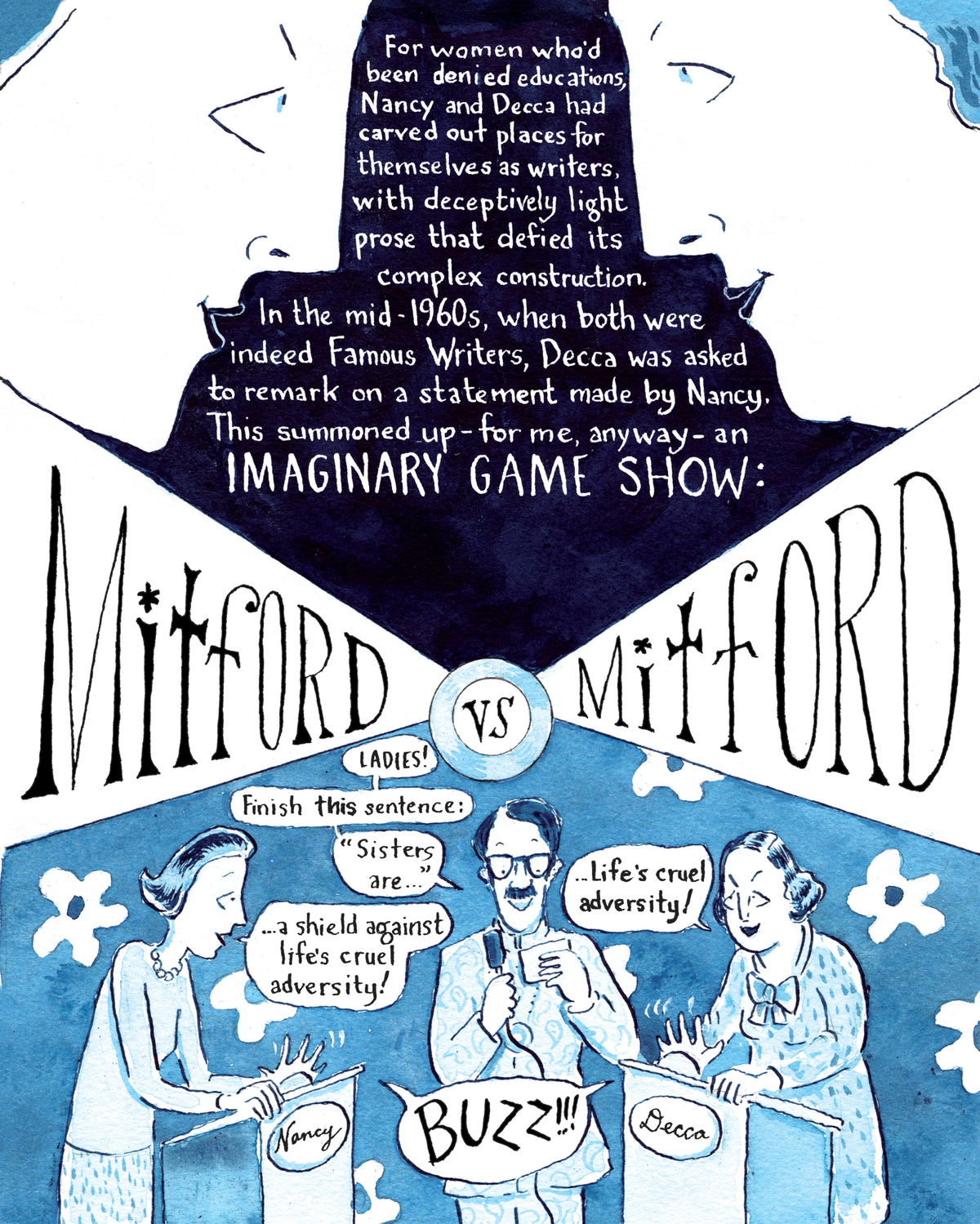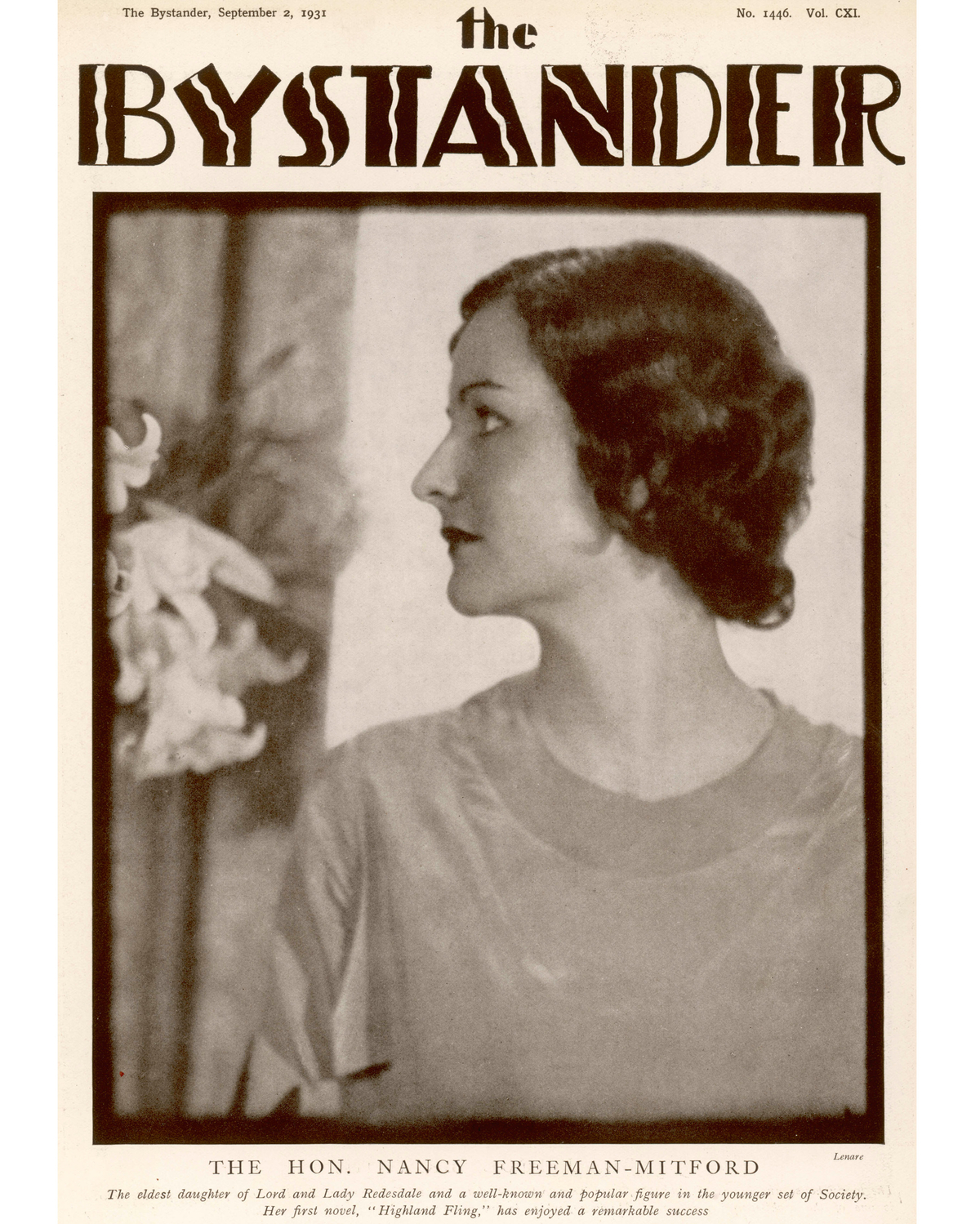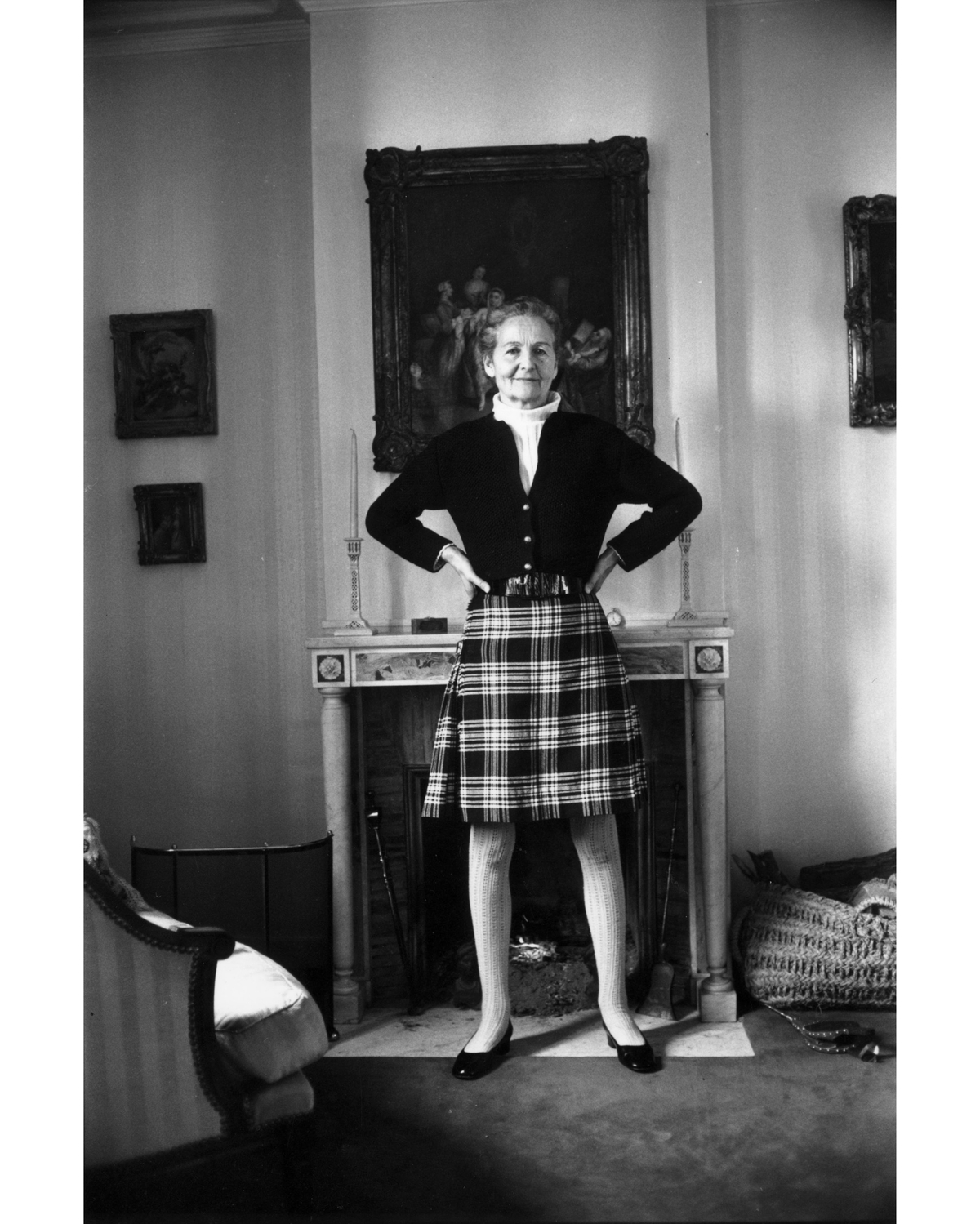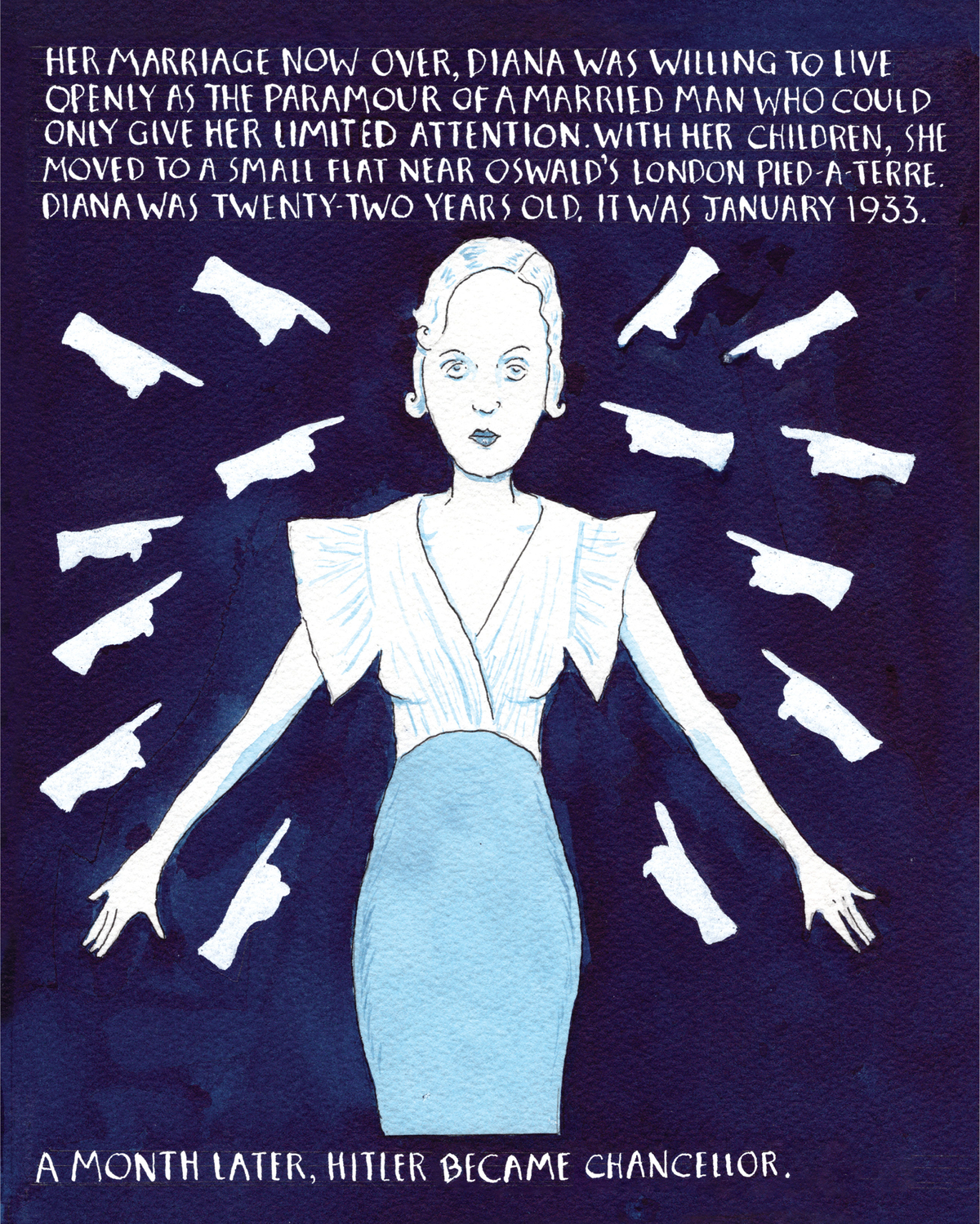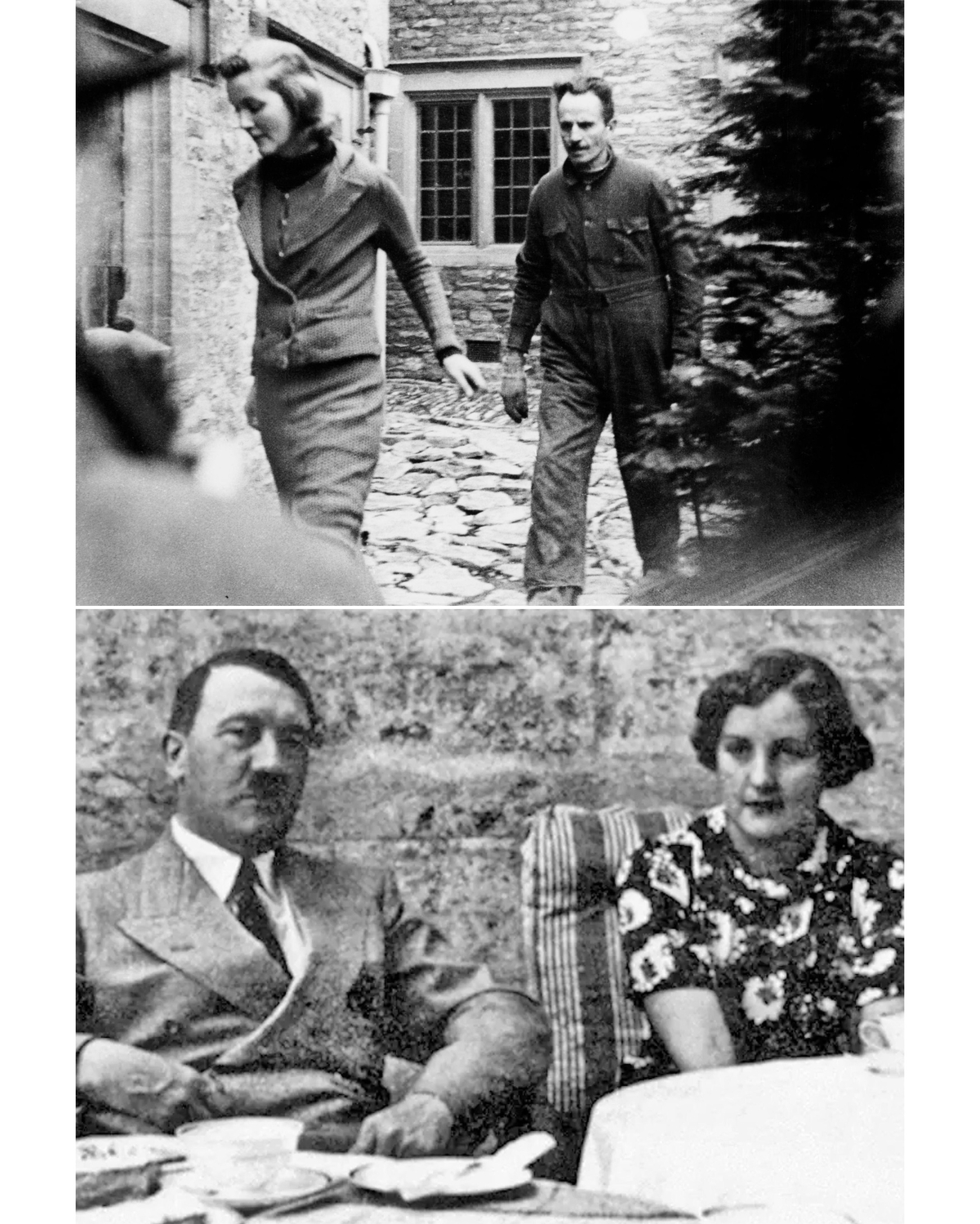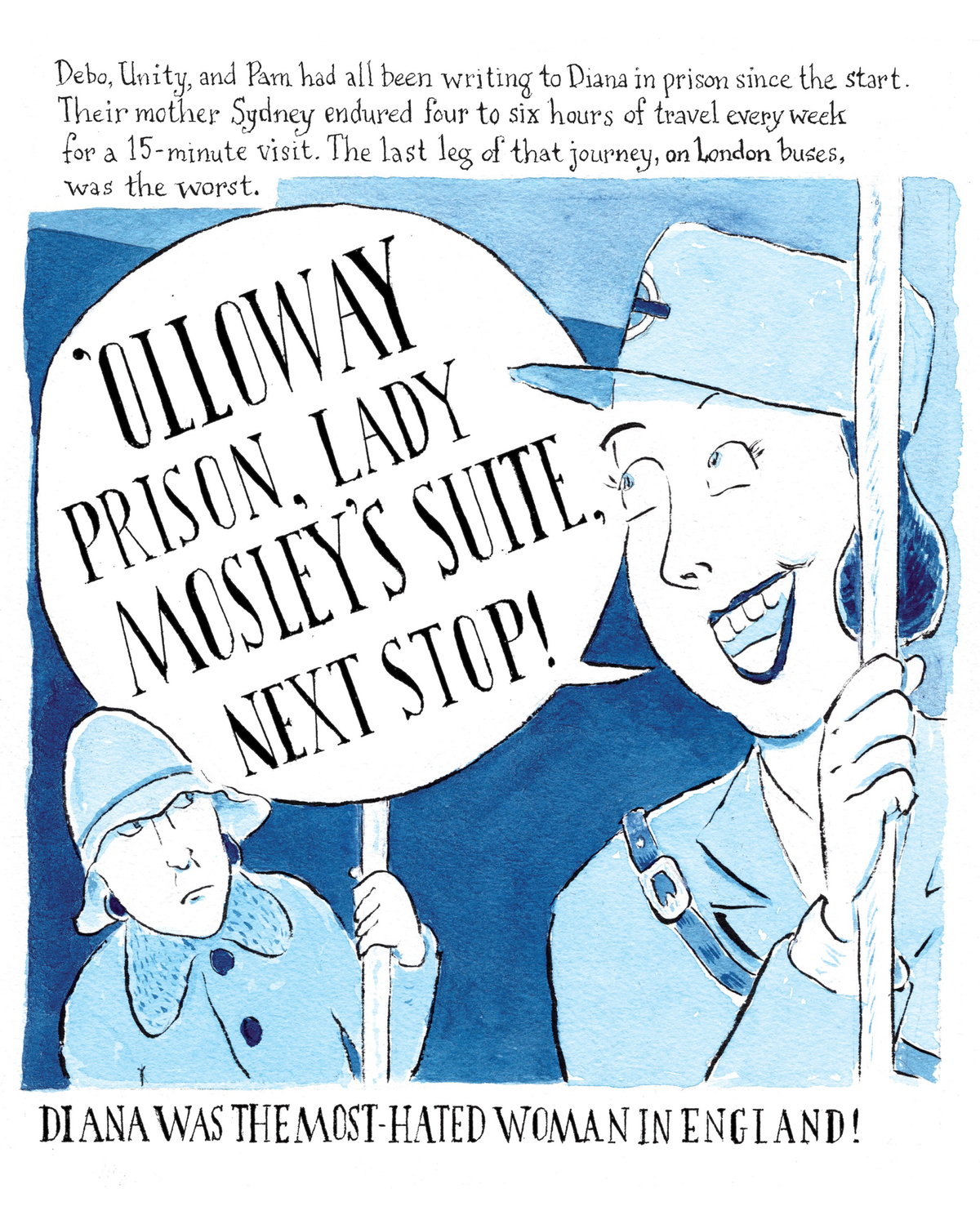When the six Mitford sisters—Nancy, Pamela, Jessica, Diana, Unity, and Deborah—born between 1904 and 1920, left their family’s isolated estate in Oxfordshire and went out into the world, they ended up hobnobbing with Adolf Hitler, Winston Churchill (their cousin), two generations of Kennedys, the Duke and Duchess of Windsor, and Queen Elizabeth II. Politically, they ran the gamut from Fascist to Communist, and the youngest became the Duchess of Devonshire. Nancy, the novelist, and Jessica, the muckraking journalist, became best-selling authors.
The Mitfords cut a large swath through the 20th century, influencing it and millions of people, for better or worse. One of those is cartoonist Mimi Pond, whose latest graphic novel is Do Admit: The Mitford Sisters and Me. It’s her third work of nonfiction comics, after her PEN-award-winning Over Easy and The Customer Is Always Wrong.

